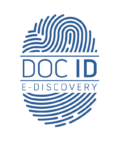Posted by Paulette Keheley | Thu, Oct 13, 2022
eDiscovery is often thought of as a dry and technical process, but it can also be seen as a social justice issue. In recent years, there has been an effort to increase diversity in the legal profession, and eDiscovery software can play a role in leveling the playing field.
Women-owned law firms are growing at a faster rate than any other type of law firm, but they still face significant challenges. National Association of Minority and Women-Owned Law Firms (NAMWOLF) is working to change that, and eDiscovery software can help.
Women-Owned Law Firms: By the Numbers
According to the most recent data, women comprise only 22% of all equity partners. This is exceptionally low, considering that 40% of lawyers in the U.S. are women, and that number is rising. In fact, in 2020, women accounted for more than half (53.62%) of all summer associates.
Positions in the summer associate program are considered quite prestigious. They offer practical and paid experiences for upper-level law students. Usually undertaken during the summer after the second year of law school, these positions are stepping stones to almost guaranteed post-graduate employment, making them highly sought after.
The good news is that women-owned firms are growing at a faster rate than any other type of law firm. In fact, between 2007 and 2016, the number of women-owned law firms increased by nearly 60%.
And over the last six years, the proportion of female attorneys has increased from 34% to 37.7% at U.S. law firms, from 29.4% to 33% among nonequity partners, and from 19.2% to 23.3% among equity partners, according to Law360.
National Association of Minority and Women-Owned Law Firms
NAMWOLF is a national trade association that is dedicated to promoting diversity in the legal profession. The organization has over 200 member firms, all of which are owned by minorities or women.
NAMWOLF works to level the playing field for these firms by providing them with access to business opportunities, networking opportunities, and educational resources.
Women and Minorities in Firm Leadership Positions
Another area in need of growth is women and minorities in firm leadership positions. According to a recent study, 10.2% of equity partners are people of color, and only 3% of equity partners are female minorities. This lack of diversity can have a significant impact on the types of clients that firms are able to attract and retain.
Additionally, in the past decade, lawyers of color increased from 11.2% of all attorneys in 2011 to 14.6% in 2021. However, it’s important to note that those gains were not seen across all minority groups. Diversity efforts have made some progress, though the numbers of Black and Native American lawyers have dipped.
Are We Seeing More Diverse Law Students?
In recent years, there has been an increase in the number of minority and female law students. According to the most recent data from the American Bar Association, people of color made up 27% of all law students in 2016. That number stayed about the same from 2016 to 2021.
However, this is a significant increase from 2007, when people of color made up only 20% of law school students. So while we are seeing more diverse law school students, those numbers aren’t yet being reflected in law firm leadership roles.
Additionally, women made up most of law school students for the first time in 2016, accounting for 51% of all students. In 2021, that number rose to 55.29%.
Recent Diversity Efforts and Results in the Legal Profession
There have been a number of efforts to increase diversity in the legal profession in recent years. Some of these efforts have been made by law firms, while others have been made by organizations that work with law firms.
The American Bar Association lists steps toward the goal of improving diversity and inclusion in law firms, including:
Adopting inclusive law department operating principles.
Establishing and implementing policies, practices, and procedures for identifying, retaining, and onboarding diverse outside counsel.
Working with third parties, such as bar associations, interest groups, and law departments at industry peers.
But one less obvious tool for leveling the playing field in the legal industry could be the actual software firms use to litigate cases.
How eDiscovery Software Can Level the Playing Field
eDiscovery software can level the playing field for minority and women-owned law firms by giving them access to the same tools and resources that larger firms have, but in a more accessible and affordable way.
eDiscovery software can help these firms save time and money on discovery projects, boosting their bottom line and allowing them to take on more clients or higher-paying clients with more complex cases. In addition, eDiscovery software can help firms manage their data in a more efficient way and increase data security.
In fact, research on the use of technology by minority and women-owned enterprises (MWEs) determined that computer use and firm performance go together. The studies found that the higher the computer intensity index, the higher the sales per worker, profits, profits per worker, and sales net of computer costs per worker.
Just as small firms saw business development and competitiveness driven by acquiring customers and by establishing higher profitability with higher-volume customers, the same can be seen in law firms. Thus, eDiscovery tools can have a huge impact on productivity and profitability.
Diverse Talent as a Tool for Business Development
Having more legal diversity can also help firms attract and retain clients. By hiring diverse associates and promoting inclusion efforts, firms can show their commitment to diversity and inclusion. This can be a valuable selling point for potential clients who are looking for a law firm that shares their values.
Diversity is important in law because it creates a better reflection of society as a whole, enabling firms and legal departments to better serve their clients. For lawyers and their organizations, a diverse workplace also creates new opportunities and leads to better employee engagement and retention.
Additionally, many major corporations are pressuring law firms to diversify leadership positions and roles across the board. For example, the Coca-Cola Company has begun pressuring law firms who handle their legal matters to include more minorities in their legal teams. Thus, diversity and inclusion efforts can help attain and retain major players in the corporate industry.
Improving Diversity and Inclusion in the Field of Law
There is still work to be done in terms of improving diversity and inclusion in the legal industry. However, eDiscovery software can play a role in leveling the playing field for minority and women-owned law firms.
By giving these firms access to the same tools and resources that larger firms have, eDiscovery software can help them compete in the legal field.
In Conclusion
When we talk about eDiscovery, most of us think about the technology and its ability to help businesses and law firms manage data more efficiently. However, eDiscovery can also be used as a tool for social justice.
Such software can help minority and women-led law firms thrive in a competitive field. However, there is still more to be done to address the lack of diversity in the legal profession and find new and innovative ways to improve inclusion and diversity in the industry.







Leave A Comment